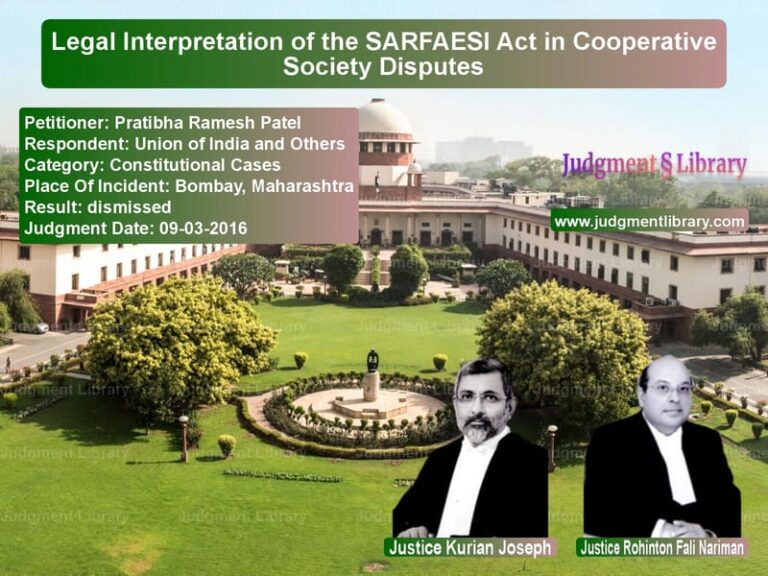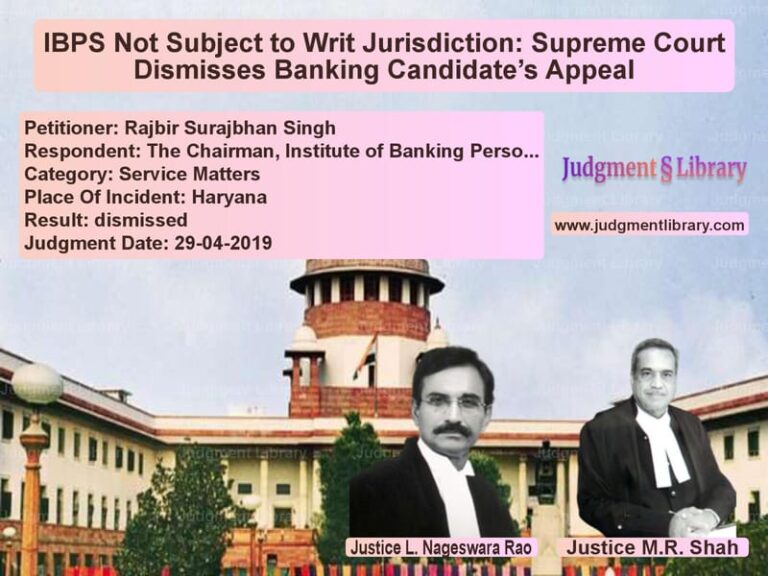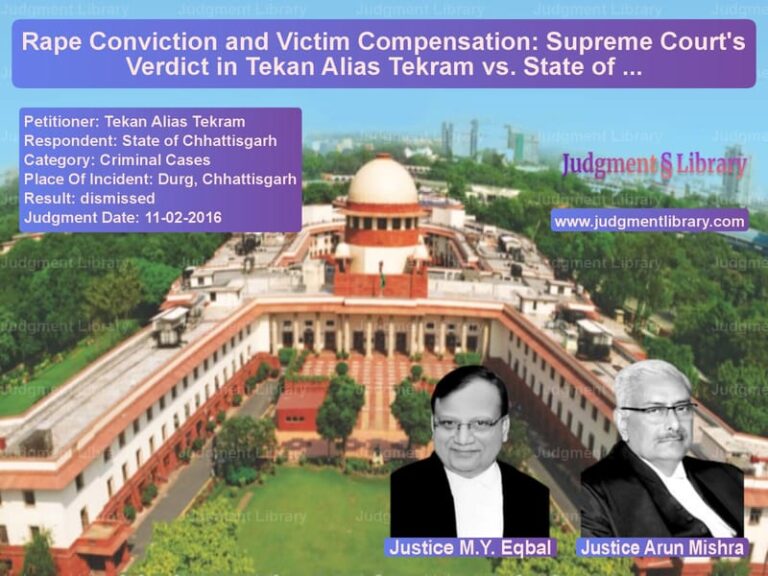Murder Conviction Upheld: Supreme Court Rules on Unlawful Assembly and Section 149 IPC
The case of Duleshwar & Anr. vs. State of M.P. (Now Chhattisgarh) revolves around a brutal murder involving a group assault in village Kodebod, Chhattisgarh. The Supreme Court was asked to determine whether the accused were rightly convicted under Section 302 read with Section 149 of the Indian Penal Code (IPC) for forming an unlawful assembly and committing murder.
Background of the Case
The case involved two incidents that took place on October 15, 1998, in village Kodebod, District Dhamtari, Chhattisgarh. The first incident occurred around 4:30 p.m., where Prosecution Witness 1 (PW-1) Dhanwaram was attacked and severely injured. The second incident occurred around 5:30 p.m., resulting in the murder of Govind Singh.
The prosecution alleged that a dispute over land demarcation between the deceased Govind Singh’s family and the accused led to violence. The accused were part of an unlawful assembly that attacked the victims with deadly weapons, causing the death of Govind Singh and grievous injuries to Dhanwaram.
Trial Court’s Verdict
The Additional Sessions Judge, Dhamtari, convicted nine accused, including the appellants, under Sections 147, 148, 302/149, and 325 of IPC. They were sentenced to life imprisonment.
High Court’s Decision
The accused appealed to the High Court of Chhattisgarh, which upheld the conviction, affirming that the prosecution had proved their involvement in the murder.
Arguments by the Appellants
The appellants, through their counsel, challenged their conviction on the following grounds:
- The evidence did not establish their individual roles in the crime.
- There were inconsistencies in witness testimonies regarding their participation.
- Some accused had alibi evidence showing they were not present at the crime scene.
- The charge under Section 302/149 IPC (common object of murder) was not proven beyond reasonable doubt.
Arguments by the State
The prosecution, supported by the High Court’s ruling, contended:
- The accused formed an unlawful assembly with the common object of causing death.
- Witnesses identified the accused as part of the group that attacked Govind Singh.
- Forensic evidence and medical reports corroborated the injuries and the manner of assault.
- The post-mortem report confirmed multiple injuries caused by blunt weapons.
Supreme Court’s Observations
The Supreme Court examined whether the accused were rightfully convicted under Section 302/149 IPC, which holds all members of an unlawful assembly responsible for an offense committed in furtherance of a common object.
The Court noted:
“There is enough evidence to show that the accused persons were searching for Govind Singh, found him near the bridge, and then brutally assaulted him with lathis and other weapons. The manner of execution shows clear intent to kill.”
The Court dismissed the argument of alibi for some accused, stating that no credible defense evidence supported their absence from the crime scene.
Final Judgment
The Supreme Court ruled:
- The conviction of five accused—Bharosaram (A-1), Duleshwar (A-2), Bhanjan Singh (A-5), Keshav Prasad (A-7), and Nand Kumar (A-12)—was upheld.
- The conviction of two accused—Khemuram (A-8) and Lakhan (A-13)—was set aside, and they were acquitted.
- Life imprisonment for the convicted accused was confirmed.
Implications of the Judgment
This ruling reinforces key legal principles:
- Members of an unlawful assembly are responsible for crimes committed in pursuit of a common objective (Section 149 IPC).
- Courts must assess the quality of evidence rather than the quantity of witnesses.
- Even if an accused did not directly commit an act, they can be held liable if they were part of a group that executed the crime.
Conclusion
The Supreme Court’s decision upholds the rule of law in cases involving unlawful assemblies and group crimes. The judgment clarifies that even if individual roles are not distinctly established, shared intent and collective action are enough to sustain a conviction under Section 149 IPC.
Petitioner Name: Duleshwar & Anr..Respondent Name: State of M.P. (Now Chhattisgarh).Judgment By: Justice A.M. Khanwilkar, Justice Dinesh Maheshwari.Place Of Incident: Dhamtari, Chhattisgarh.Judgment Date: 21-01-2020.
Don’t miss out on the full details! Download the complete judgment in PDF format below and gain valuable insights instantly!
Download Judgment: Duleshwar & Anr. vs State of M.P. (Now C Supreme Court of India Judgment Dated 21-01-2020.pdf
Direct Downlaod Judgment: Direct downlaod this Judgment
See all petitions in Murder Cases
See all petitions in Attempt to Murder Cases
See all petitions in Bail and Anticipatory Bail
See all petitions in Judgment by A M Khanwilkar
See all petitions in Judgment by Dinesh Maheshwari
See all petitions in partially allowed
See all petitions in Modified
See all petitions in supreme court of India judgments January 2020
See all petitions in 2020 judgments
See all posts in Criminal Cases Category
See all allowed petitions in Criminal Cases Category
See all Dismissed petitions in Criminal Cases Category
See all partially allowed petitions in Criminal Cases Category







